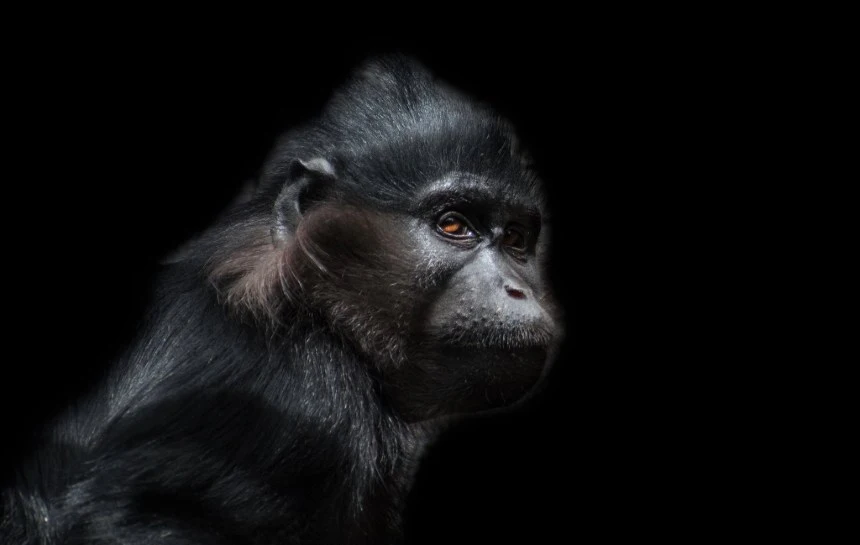Introduction: The Ethical Dimension of Nonhuman Rights
The emerging discourse on nonhuman rights marks a critical evolution in the landscape of modern justice and redefines our conventional understanding of ethical and legal standards. This profound shift in jurisprudence reflects a growing recognition that the capacity for suffering and sentience transcends human boundaries, challenging long-established norms that have historically confined rights to humans.
Nonhuman rights, particularly for sentient animals, propose a fundamental rethinking of who or what merits legal protections under the law, urging a reassessment that aligns with contemporary ethical insights.
As societies grapple with this paradigm shift, the push for nonhuman rights signifies a significant transformation in societal values, recognizing the intrinsic worth and moral considerability of animal life. This adjustment in legal and ethical thinking prompts a rigorous re-evaluation of rights, encouraging a more inclusive view that acknowledges the importance of all sentient beings. Through this expanded perspective, the very notion of justice is redefined, paving the way for a more comprehensive and equitable application of rights across species.
The discussion of nonhuman rights, particularly concerning sentient animals, signifies a profound shift in the rights discourse.
The recognition of nonhuman rights engages with a broader philosophical debate about the nature of rights and justice, drawing parallels with historical rights expansions such as those seen in movements for civil and women’s rights. These analogies are instrumental in understanding the trajectory of rights discourse, suggesting that what once seemed radical can become accepted as fundamental in a progressive society.
The Evolution of Rights: From Human to Nonhuman
Traditionally, the concept of rights has been exclusively associated with human beings, anchored firmly to the definition of humanity. Rights have been regarded as privileges inherent to human status, distinguishing humans from other beings. This view has long influenced legal and ethical frameworks, dictating the allocation of protections and entitlements solely to humans. Yet, as societal understanding evolves, so too does our perspective on potential rights-holders, extending beyond the human species.
The discussion of nonhuman rights, particularly concerning sentient animals, signifies a profound shift in the rights discourse—not merely expanding the scope of existing rights but fundamentally redefining the concept itself. This shift in rights recognition is analogous to historical extensions of rights to other marginalized groups who were previously denied legal and moral consideration. For example, the rights movements that gradually recognized women and various minority groups reflect a similar broadening of perspectives regarding who qualifies for rights.
This evolution suggests that rights are not static but dynamic; they evolve as our moral and ethical capacities develop. The argument for nonhuman rights arises from a growing recognition of the sentience and intrinsic value of animals, challenging the traditional anthropocentric view that equates rights with human characteristics alone. Advocating for nonhuman rights involves rethinking the foundational principles of rights and justice, proposing that such concepts should not be restricted by species but should be based on the capacity to experience and have interests.
As we continue to explore and accept the complexities of sentience beyond humans, the legal and ethical frameworks begin to adapt, embracing a more inclusive approach. This progression towards a more comprehensive rights framework reflects a natural and necessary expansion of our ethical horizons, aiming to encompass all sentient beings within the sphere of moral and legal consideration. Thus, the evolution of rights from human to nonhuman is not merely an extension but a significant transformation, marking a critical development in the way justice is conceptualized and applied.
Nonhuman Rights: Challenging the Conventional
The emergence of nonhuman rights disrupts long-held conventions by asserting that sentient animals hold intrinsic value deserving of legal protections akin to human rights. This transformative idea is gaining traction within legal circles as the cognitive and emotional capacities of nonhuman species become more evident and difficult to overlook. Historically marginalized groups, once sidelined from rights discussions, have seen their struggles for recognition yield shifts in societal and legal norms—parallels now mirrored in the discourse on animal rights.
Landmark legal decisions have conferred rights such as habeas corpus to nonhuman primates and a bear.
Initially viewed as radical, the argument for nonhuman rights is gradually entering mainstream legal debates, suggesting a paradigm shift in judicial thinking.
Courts and lawmakers are beginning to entertain the notion that if rights are truly based on sentience and the ability to suffer, then they should not be exclusively human.
This perspective is propelled by increasing legal precedents where nonhuman entities are granted rights once reserved only for humans, reflecting a broader re-evaluation of what constitutes a rights-holder.
As this concept advances, it challenges the foundational premises of legal systems worldwide, prompting a re-examination of laws crafted under anthropocentric assumptions. The progression of nonhuman rights from theoretical discourse to actionable legal concepts marks a critical evolution in the overarching principles of justice and equity, advocating for a legal system that recognizes the moral worth of all sentient beings.
The Legal Landscape: Recognizing Nonhuman Rights
Recent legal developments indicate a significant shift as various judicial systems start to formally recognize nonhuman rights. Notably, in Argentina and Colombia, landmark legal decisions have conferred rights such as habeas corpus to nonhuman primates and a bear.
The expansion of nonhuman rights has the potential to catalyze significant legal and social reforms.
These groundbreaking rulings are pivotal, signifying an early but expanding acceptance of nonhuman legal personhood. Such cases illustrate the adaptability of legal frameworks to accommodate entities beyond humans, thereby confronting and gradually dismantling the entrenched anthropocentric bias within rights legislation.
The extension of these fundamental rights to nonhumans in several legal systems is emblematic of a broader movement redefining legal personhood and entitlements. These judicial recognitions are not isolated anomalies but part of a wider trend where courts increasingly accept the premise that rights protection should extend to all sentient beings capable of experiencing harm and deprivation of liberty.
This evolving legal acknowledgment of nonhuman rights underscores a shift towards a more inclusive and ethically responsive legal system. By integrating nonhuman rights into their jurisprudence, these systems are setting precedents that challenge traditional views and pave the way for a comprehensive re-evaluation of rights in the context of an interconnected ecological and ethical landscape.
Ethical Implications and Societal Impact
The acknowledgment of nonhuman rights introduces deep ethical and societal repercussions. This development challenges societies to reassess their moral duties towards nonhuman entities and scrutinize the consequences of human activities on animal well-being. As legal systems begin to integrate nonhuman rights, this paradigm shift may instigate substantial modifications in our interactions and management of animal populations. Industries that have traditionally relied on the exploitation of animals are prompted to revise their practices, potentially fostering a shift towards more humane methods of treatment.
This evolving recognition could also stimulate a broader cultural shift in how animals are perceived and valued within society. By legally affirming nonhuman rights, there is an opportunity to redefine ethical standards and responsibilities across communities, encouraging a more empathetic and informed approach to biodiversity and conservation efforts. Such changes are likely to influence public policy, consumer behavior, and corporate accountability, leading to enhanced protections for animals across various sectors.
Ultimately, the legal recognition of nonhuman rights could serve as a catalyst for widespread ethical reform, promoting a society that respects and upholds the intrinsic value of all sentient beings. This shift not only has the potential to improve the lives of nonhuman entities but also to enrich human society by fostering greater compassion and ethical responsibility towards the natural world.
Future Directions: Expanding the Rights Paradigm
The increasing momentum behind the nonhuman rights movement is driving a fundamental re-evaluation of ethical frameworks and legal structures. This shift signifies a maturing consensus that rights once exclusively reserved for humans need to be reimagined within a broader, more inclusive framework. Such a framework would acknowledge the moral significance and sentient capabilities of nonhuman entities, aligning legal recognition with emerging ethical understandings.
This movement is likely to influence a transformation in how rights are conceptualized and applied, advocating for a legal and moral recognition that spans across all sentient beings. This could lead to the establishment of a unified rights paradigm that not only acknowledges but actively incorporates the interests and welfare of nonhuman species. The implications for such a shift are profound, promising to redefine interactions between humans and nonhumans in various spheres, including environmental management, animal welfare, and biodiversity conservation.
The expansion of nonhuman rights has the potential to catalyze significant legal and social reforms. It presents an opportunity to develop a more ethically consistent and ecologically sensitive approach to rights, one that respects the interconnectedness of all life forms. This evolving perspective on rights could lead to more robust protections for nonhumans, ultimately fostering a more just and ethical society that recognizes the inherent value of all sentient beings.
Conclusion: A New Ethical Horizon
Nonhuman rights mark a pivotal development in the evolution of ethical and legal thinking. This burgeoning field challenges us to extend the limits of moral consideration and legal protection far beyond traditional human-centered boundaries. As we delve deeper into the implications and potential of nonhuman rights, we confront the necessity to recalibrate our ethical compass to include all sentient beings sharing our planet.
This shift is not merely theoretical; it demands a substantial transformation in our legal and ethical systems. By recognizing nonhuman rights, we acknowledge the complex interdependencies within our ecosystems and the inherent value of all forms of life. This recognition is crucial as it highlights the dynamic and adaptable nature of rights themselves, reflecting an advanced understanding of justice that transcends species barriers.
As this field continues to develop, the integration of nonhuman rights into global legal and ethical frameworks could represent one of the most significant shifts in how rights are understood and enacted worldwide. This integration promises not only to enhance the well-being of nonhuman beings but also to enrich human society by fostering a deeper, more inclusive respect for life in all its forms. The road ahead is complex and uncharted, but it holds the promise of a more just and ethically consistent world.
Adaptation by Politics and Rights Review of an academic chapter, under license CC BY 4.0. Revised and approved by the author.






